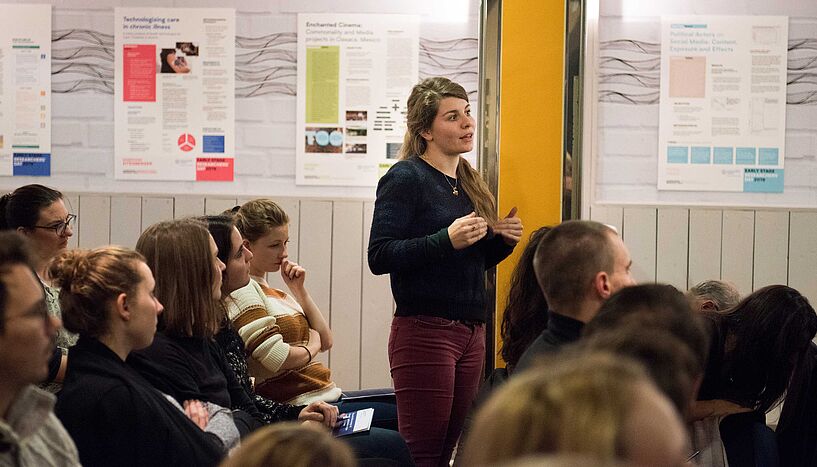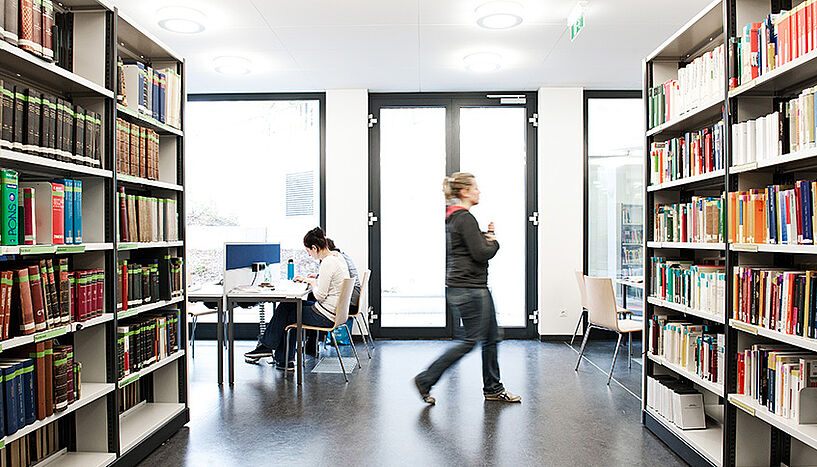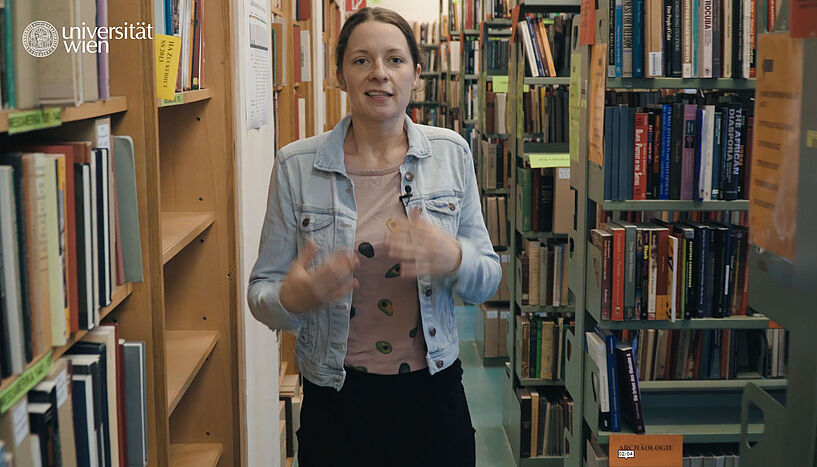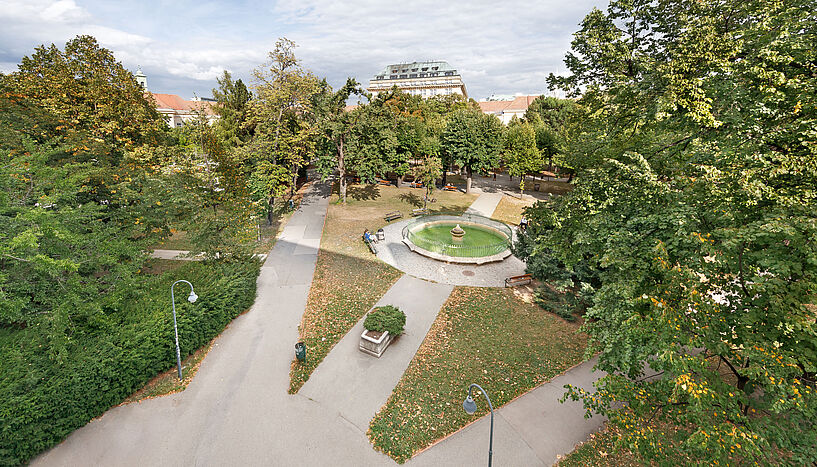The end of the monograph?
Redaktion (uni:view) | 15. November 2019This year’s Early Stage Researchers’ Day at the Faculty of Social Sciences addressed changing publication strategies in the social sciences. In addition to a keynote and a panel discussion, doctoral candidates presented their research projects and the Sowi-Doc.Awards 2019 were awarded.

Organised by the Graduate Centre of the Faculty of Social Sciences, the Early Stage Researchers’ Day took place in the NIG Mensa on 11 November. The event attracted many doctoral candidates, postdoctoral researchers and senior scientists from the Faculty.

In his welcome address, Hajo Boomgaarden, Dean of the Faculty of Social Sciences, praised early stage researchers as main drivers of innovation and change. He emphasised that doctoral and postdoctoral researchers are an integral part of the Faculty and that this event also aims at fostering their "sense of belonging to our community of researchers".

In her welcome statement, Birgit Sauer, Vice-Dean for Career Development and International Affairs, highlighted the relevance of developing publication strategies at an early stage in a researcher’s career. She outlined the ample opportunities offered by the Graduate Centre of the Faculty of Social Sciences. She also encouraged early stage researchers to continue coming up with new ideas for future workshops.

Tatjana Thelen, Social Sciences Vice-Director of Doctoral Studies, explained that her role as a supervisor is to support early stage researchers in becoming a member of an academic community. She described the diversity of the Faculty of Social Sciences as a great treasure, thus, reminding the audience that "there is not only one way of doing good science, but many".

In her keynote speech "On the diversity of publication cultures in the social sciences", Ulrike Felt, Head of the Department of Science and Technology Studies, argued that instead of strategising where and how to publish, early stage researchers should try to remain curious about the world and aim at producing high-quality research. Nevertheless, as Felt emphasised, supervisors have the responsibility for making students capable of understanding "the ecosystem in which they have to act" and to advise them on how to navigate in these structures. When reminding the audience that publication cultures are socially constructed, she also encouraged researchers to influence the funding agencies’ and institutions’ perception of good science.

The panel discussion on the issue of changing publication strategies was moderated by Markus Wagner, Vice-Dean for Research and Infrastructure. Ayşe Çağlar (Department of Social and Cultural Anthropology) emphasised that, in most fields, it is necessary to publish research in both journal articles and monographs because these two forms of publication serve different purposes. Moreover, she encouraged the audience to question how and under which conditions publication cultures are produced, and when and where they become a topic of discussion.

Bernhard Riederer (Department of Sociology) highlighted that publication cultures in the social sciences differ from other fields insofar as social scientists usually still need to show that they are "able to write a book". Moreover, he recommended to invest sufficient time in choosing the appropriate journal for a paper because debates sometimes substantially differ even if journals have the same thematic focus.

Petra Grabner (FWF Austrian Science Fund) emphasised that in order to acquire funding for their projects, researchers have to convince international reviewers in the review process rather than the funding agency itself. She advised early stage researchers to aim for quality rather than quantity, to raise their international visibility, establish networks and to demonstrate independence as a researcher.

Jörg Matthes (Department of Communication) pointed out that in the discussions on publication strategies, the differences between books and journals tend to be overemphasised. More important than the question whether to choose "the book or the journal model", he argued, are the questions regarding in which language to publish and whether researchers intend to undergo peer review and rely on high reputation sources or not.

Finally, Dean Hajo Boomgarden awarded the Sowi-Doc.Awards for outstanding dissertations in the academic year of 2018/19 to Tobias Boos (political science), Raphael Heiss (communication science, picture) and Andreas Streinzer (social and cultural anthropology).

On behalf of the three awardees, Andreas Streinzer acknowledged that, during their doctoral studies, all of them had received substantial support from funding agencies, families, supervisors, colleagues and working groups. Based on that, he argued that more funding and more stable perspectives are needed in order to enable more people – and especially those having less privileged backgrounds – to address the pressing issues of our time through a social science lens.

During the reception, awardees and doctoral candidates presented and discussed their doctoral research as part of the poster exhibition "Thesis by publication or monograph?".

The reception also offered opportunities for informal exchange and mingling with early stage researchers from different research fields and in different stages of their careers. (All pictures: © Barbara Mair)



